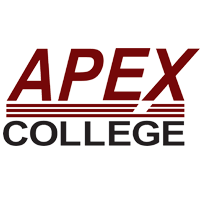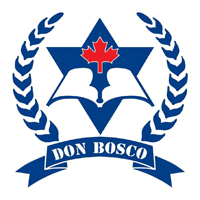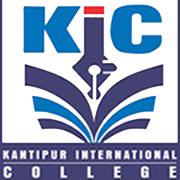Overview
Overviews of MBA Finance at Nepal Commerce Campus (NCC), Affiliated with Tribhuvan University (TU)
The MBA Finance program at Nepal Commerce Campus (NCC) is a postgraduate degree designed to cultivate advanced financial management and analytical skills in students. Affiliated with Tribhuvan University, this program integrates theoretical knowledge and practical insights, preparing students for leadership roles in the ever-evolving global financial landscape. It is tailored for aspiring finance professionals aiming to significantly impact various sectors, including banking, investment, corporate finance, and public policy.
Program Duration
-
Total Duration: 2 years (4 semesters)
-
Structure: Each semester spans six months, comprising core courses, electives, and project work.
-
Credit Hours: The program requires the completion of 60 credit hours, divided into core courses, elective modules, and a capstone project.
Eligibility Criteria
-
Academic Requirements:
-
Must have completed a bachelor’s degree or equivalent from a recognized institution.
-
Minimum second division or CGPA 2.0 in undergraduate studies.
-
Entrance Exam: Candidates must pass the Tribhuvan University Management Admission Test (TUMAT) with a minimum qualifying score.
-
Work Experience: While not mandatory, prior work experience in a finance-related role is considered an advantage.
Admission Process
-
Application Submission: You must complete the application form and submit it along with your academic transcripts, certificates, and personal statement.
-
Entrance Examination: Appear for TUMAT, testing quantitative aptitude, verbal ability, and analytical reasoning.
-
Personal Interview: Shortlisted candidates are called for a comprehensive interview to assess their motivation and potential.
-
Final Selection: Admission decisions are based on TUMAT scores, academic performance, and interview results.
Course Outline
Core Courses:
-
Financial Management
-
Managerial Economics
-
Corporate Finance
-
Investment Analysis and Portfolio Management
-
Financial Markets and Institutions
-
Risk Management and Insurance
-
Strategic Management
-
Research Methodology
Elective Modules:
-
Derivatives and Financial Engineering
-
International Finance
-
Behavioral Finance
-
Public Financial Management
-
Microfinance and Development
Capstone Project:
-
Students must undertake a comprehensive research project or case study on a financial topic, applying theoretical frameworks to real-world scenarios.
Subjects Offered
-
Principles of Accounting
-
Business Statistics
-
Financial Reporting
-
Taxation and Legal Aspects of Finance
-
Advanced Corporate Strategy
-
Ethics in Financial Management
-
Technology and Data Analysis in Finance
-
Leadership and Organizational Behavior
Program Objectives
-
Develop an understanding of financial principles and their applications in decision-making.
-
Foster analytical and critical thinking skills to evaluate financial risks and opportunities.
-
Prepare students to navigate global financial markets and regulatory frameworks.
-
Encourage ethical practices and corporate social responsibility in finance.
-
Equip students with leadership skills for managing financial teams and projects.
Teaching Methodology
The MBA Finance program is student-centric and combines lectures, case studies, simulations, and group projects. Interactive sessions encourage critical thinking, while industry guest lectures and field visits bridge the gap between academics and practical finance. Faculty utilize real-world case studies and modern financial tools to ensure that students can effectively apply theoretical concepts.
Learning Outcomes
-
Gain advanced knowledge in financial management and investment analysis.
-
Develop expertise in managing financial risks and opportunities.
-
Enhance leadership and decision-making skills.
-
Learn the use of financial tools and software for data-driven decision-making.
-
Understand the ethical and regulatory dimensions of global finance.
-
Prepare for corporate finance, investment banking, and public financial management leadership roles.
Future Scope
-
Career Opportunities: Graduates can find positions in investment banking, financial consulting, asset management, and corporate finance.
-
Academic Pathways: Pursue further studies, such as a PhD in Finance or specialized certifications like CFA or CPA.
-
Entrepreneurship: Leverage financial expertise to start and manage successful ventures.
Career Prospects
Potential job roles for MBA Finance graduates include:
-
Financial Analyst
-
Investment Banker
-
Portfolio Manager
-
Corporate Treasurer
-
Risk Manager
-
Public Policy Advisor
-
Chief Financial Officer (CFO)
Scholarship Opportunities
NCC offers scholarships based on academic excellence, need-based criteria, and entrance exam performance. Scholarships are also available for students from marginalized communities, ensuring inclusivity and equal opportunities.
Fees Structure
-
NCC determines the tuition fees for the MBA Finance program and is competitive, offering value for money.
-
Additional costs include examination fees, library access, and project work.
-
Flexible payment plans are available.
Extracurricular and Co-Curricular Activities
Students engage in seminars, financial literacy campaigns, case competitions, and leadership workshops. These activities foster soft skills, teamwork, and a deeper understanding of real-world financial challenges.
Real-World Application
The program emphasizes hands-on learning through internships, live projects, and case studies. Students collaborate with industry leaders to solve complex financial problems, ensuring they are ready to tackle real-world challenges.
Sustainability and Social Impact
The MBA Finance program integrates sustainability by exploring green financing, ethical investing, and corporate social responsibility. Students are encouraged to develop financial solutions prioritizing long-term societal and environmental well-being.
Skill Development
The curriculum focuses on analytical skills, strategic thinking, and technical expertise in financial modeling, forecasting, and risk management. Soft skills, including communication and leadership, are also emphasized.
Global Perspective
The program prepares students to operate globally by addressing international financial markets, cross-border regulations, and multicultural business environments. It also features collaborative projects with international institutions.
Facilities and Support
NCC provides state-of-the-art facilities, including a modern library, advanced computer labs, and dedicated career counseling services. Students benefit from a helpful learning environment and a vast alumni network.
Why Choose the MBA Finance Program?
The MBA Finance program at NCC stands out for its comprehensive curriculum, experienced faculty, and emphasis on practical learning. Students gain exposure to the latest trends in finance, ensuring they are well-prepared for leadership roles. Scholarships, modern facilities, and industry connections make NCC a preferred choice for finance professionals.
Is the MBA Finance Program Right for You?
This program is tailored for those who aspire to excel in finance. Whether you aim for a career in investment banking, corporate finance, or entrepreneurship, the MBA Finance program equips you with the necessary tools and skills to achieve your goals.
What is the Future of the MBA Finance Program?
The future of MBA Finance is bright. There is an increasing demand for professionals who can navigate complex financial landscapes, and technological advancements and globalization are creating new opportunities for finance graduates to innovate and lead in their fields.
How Do You Improve Your Study of Finance Management Education as a Student?
To excel in finance management education, stay updated with industry trends and global financial news. Pursue a strong foundation in core concepts and leverage resources like academic journals, online courses, and financial tools. Actively participate in internships and projects to gain practical insights. Collaborate with peers and seek mentorship from professionals to refine your skills.
Conclusion
The MBA Finance program at Nepal Commerce Campus is a gateway to a rewarding career in finance. With a robust curriculum, practical exposure, and a focus on holistic development, students graduate as competent, ethical, and innovative professionals. Whether pursuing leadership roles in multinational corporations or contributing to public financial management, graduates of this program are well-equipped to make a lasting impact in the financial world.
Contact Nepal Commerce Campus's administrative office for detailed information on the MBA Finance course, including fees, scholarships, facilities, counseling, eligibility criteria, etc.

















